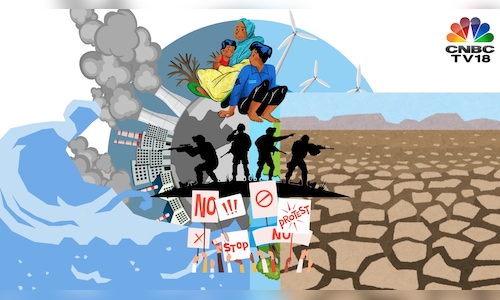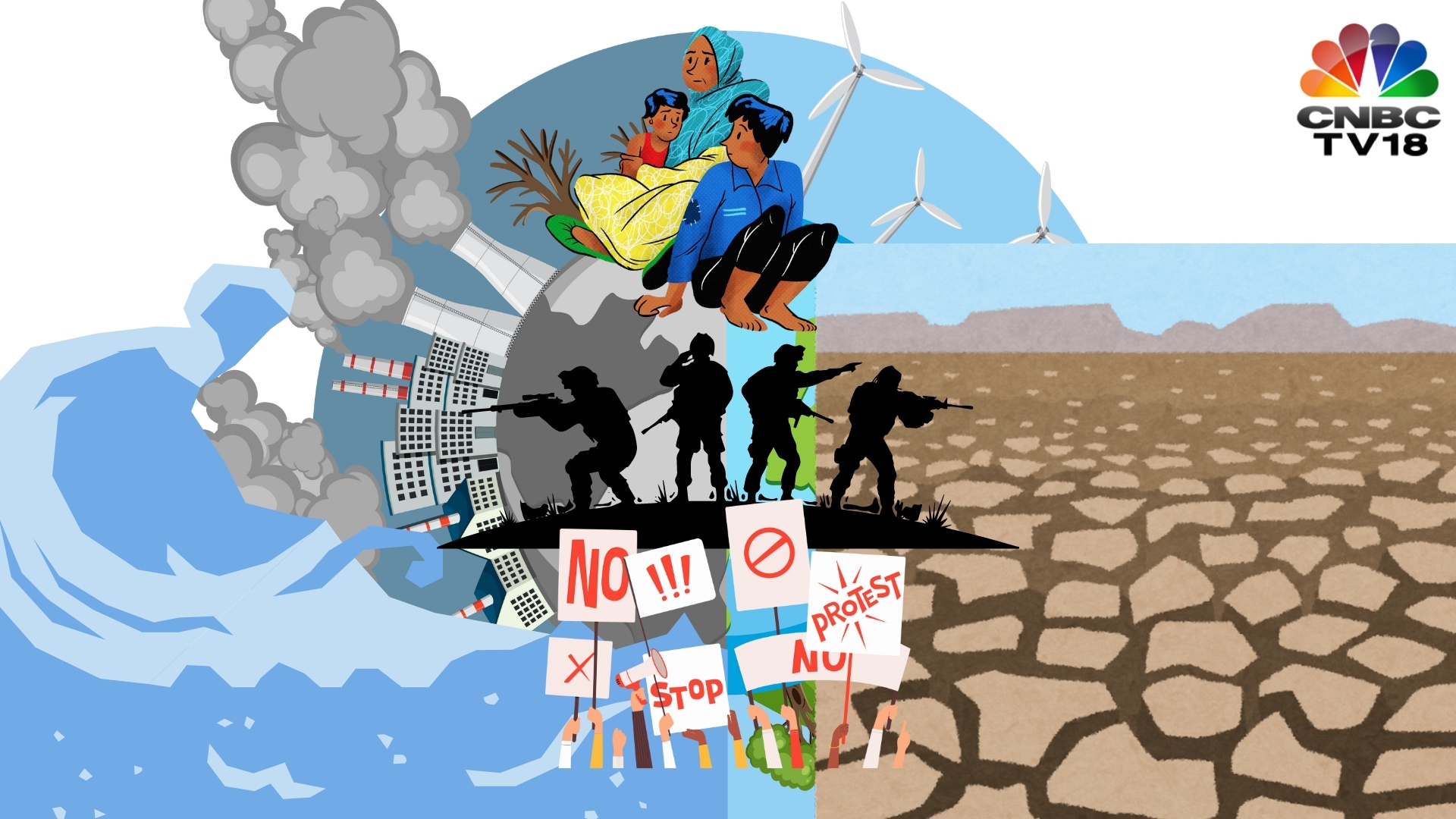

Statistics do not provide any optimism; it is estimated that more than 90% of the Indian population faces the extreme risk of heat stress, and heat exposure related productivity losses in labour might account for 4.5% of the GDP in 2030.
The impact of the situation is catastrophic. Increased temperatures are linked to the rise in heat ailments, malnutrition, and the increase of vector borne diseases like dengue and malaria, whilst polluted air serves to aggravate all respiratory and cardiovascular disease. On top of health effects and their economic costs, the more diffused impacts include workforce instability, insecure healthcare energy supplies, and disrupted essential medical supplies supply chains.
While delivering this more extensive view of cascading impacts, India’s healthcare policy may not only be expected to fill in the historical and existing healthcare gaps, but also now be required to respond to challenges associated with global warming. As a result, this dual burden of climate change and health demands high pace of action in addressing them, making this a crisis of opportunity and innovation and resilience.
Pathways to Change: A Framework for Scalable Solutions
Recognising the need, our recent study —‘Financing the climate-health frontier’ had outlined a prioritisation framework to identify actionable opportunities for private sector investment towards healthcare interventions in the face of climate change.
This framework evaluates solutions based on two key parameters — social risk and readiness for investment. It maps out disease burdens together with effective solutions and assesses the economic feasibility of the techniques employed. The framework then seeks out high-margin, socially scalable interventions which can generate positive social and economic returns.
Of the prioritised themes, three outstanding solutions were as follows:
-
- Resilient Infrastructure for Malnutrition and Food Crises
Building storage and food systems that are resilient to climate change and adapt to the variability of weather patterns that lead to food insecurity. - Innovations for the aging NCD (non-communicable disease) burden
Deploying AI and other digital technologies to alleviate an increasing load of climate-related diseases such as CVD and mental health conditions. - Early Warning Systems for Airborne Diseases
Firstly, employing modern meteorological instruments, and secondly, modern epidemiological techniques for controlling respiratory diseases associated with air pollution and temperature extremes.
- Resilient Infrastructure for Malnutrition and Food Crises
This organised approach links government activities, private sector funding and multilateral activities to ensure a comprehensive approach is undertaken to the climate-health challenge.
Funding the future: A $3 billion market for private sector innovations
The scale of the challenge is matched by the scale of the opportunity. The Indian healthcare sector is predicted to require nearly $16 billion annually in climate action financing through 2030, with the private sector anticipated to contribute 50-60% of this investment. Current investments at the intersection of climate and healthcare stand at $1 billion, accounting for just 4% of India’s total climate action funding in 2022. This creates a significant opportunity, with a potential annual market valued at around $3 billion for adaptation-focused strategies, emphasising development of reinforced structures, innovative health strategies and disease prevention initiatives.
Such a gap is predominantly accounted for by the private sector, where companies active in this domain are effectively showcasing the potential of climate-smart healthcare interventions, by demonstrating both positive financial returns and social benefits.
The road ahead: A collaborative vision
India’s climate-health journey requires collaborative efforts from all stakeholders to develop transformative and sustainable solutions. While the government has effectively integrated climate-resilient health strategies into broader national frameworks, it is crucial for all stakeholders, including the private sector, to strategically prioritise interventions to maximise impact and optimise resource allocation. Partnerships among governments, private investors, and non-profits can further amplify impact by pooling resources and expertise.
Companies should integrate climate-conscious practices into their operations, such as adopting renewable energy and designing resilient facilities, to align with the broader goal of creating an enabling sustainable ecosystem. Achieving this requires academicians and policy makers to build capacity and capability across diverse stakeholder groups to drive health-focused climate adaptation and mitigation efforts. Furthermore, enabling platforms such as carbon markets can significantly support countries in achieving climate goals and implementing actions cost-effectively.
By incorporating climate-conscious education, training, job creation, and strategic initiatives that safeguard health, we can ensure sustainable benefits for both current and future generations.
With $3 billion in annual opportunities for private players, India stands at the cusp of a transformative era where healthcare not only adapts to climate change but thrives despite it.
This is not just a challenge for India — it serves as a blueprint for the world to reimagine healthcare in the face of a changing climate. By leveraging this intersection of climate and health, India has the opportunity to position itself as a global leader in developing resilient healthcare systems that serve both humanity and the planet.
—The authors; Sunil Thakur, is Partner, and Shivani Sahai, is Head-Impact and ESG, at Quadria Capital. The views expressed are personal.



